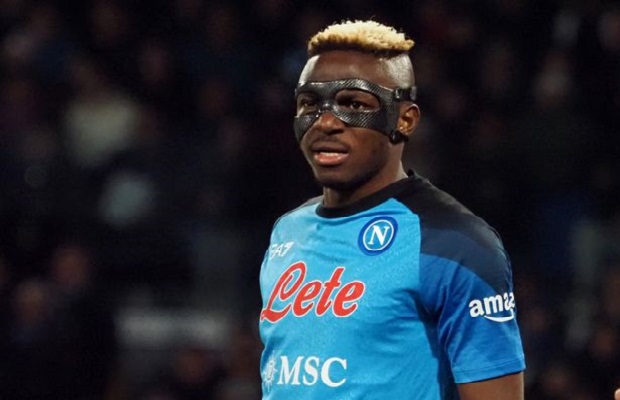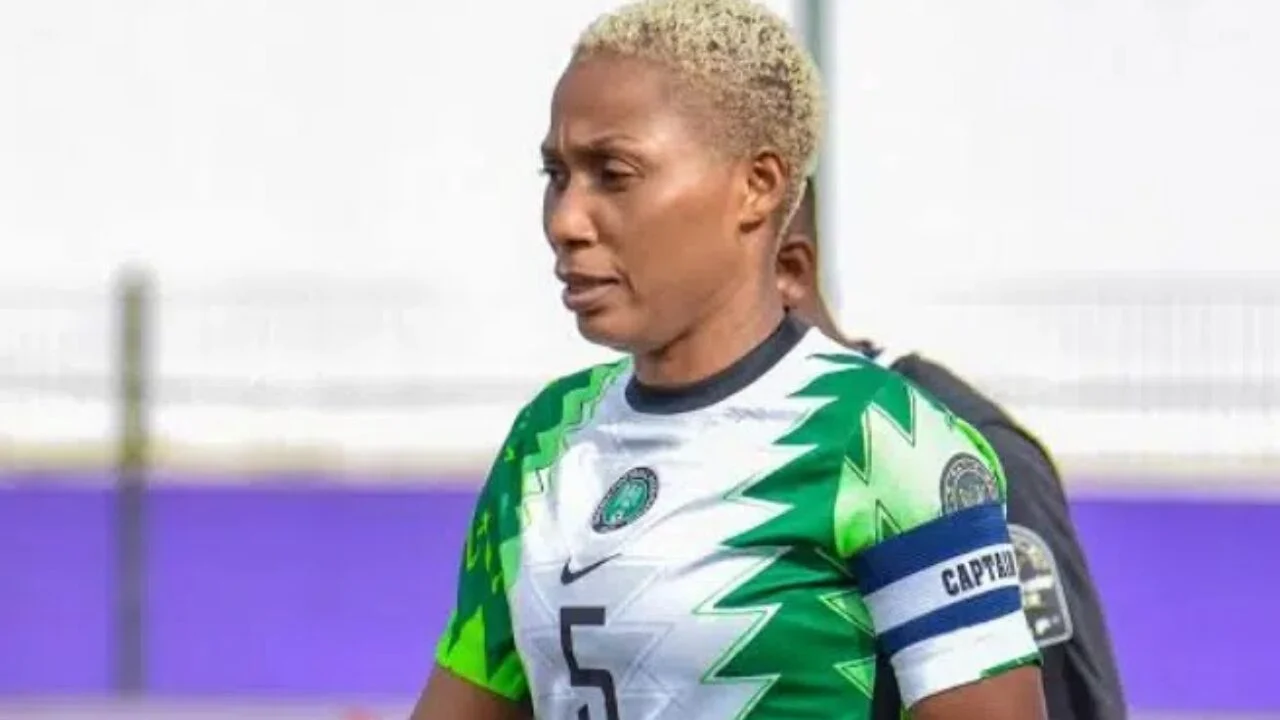Athletes
Novak Djokovic: A Journey to Tennis Greatness
Novak Djokovic: A Journey to Tennis Greatness
“Novak Djokovic, the legendary Serbian tennis player, has set an unprecedented record in the history of men’s tennis by winning 24 Grand Slam singles titles, the highest ever achieved by any male tennis player.
This remarkable achievement includes a record-breaking ten titles at the Australian Open, demonstrating Djokovic’s dominance on hard courts. In addition to his Grand Slam victories, Djokovic has amassed an impressive total of 98 singles titles throughout his illustrious career.
Notably, he holds the record for the most ‘Big Titles’ in men’s tennis, with a staggering 71, including 24 majors, a record 40 ATP Masters titles, and an unparalleled seven wins at the ATP Finals.

Djokovic’s unparalleled skill, resilience, and consistent performance at the highest levels of the sport have solidified his status as one of the greatest tennis players of all time.
His achievements have not only elevated the standards in men’s tennis but also inspired a generation of players and fans alike.
As he continues to compete at the top of his game, Novak Djokovic’s contributions to tennis are a testament to his dedication, hard work, and unmatched talent.”
Early Life and Career Beginnings
Novak Djokovic’s journey to becoming one of the greatest tennis players of all time began in the humble city of Belgrade, Serbia. Born on May 22, 1987, Djokovic’s passion for sports was evident from an early age.
He excelled at a variety of sports, including football, basketball, and skiing, but it was tennis that truly captured his heart.
Novak Djokovic tennis childhood
Djokovic’s parents, Srdjan and Dijana, recognized their son’s talent and enrolled him in tennis lessons at the age of four. Under the guidance of Jelena Genčić, a former Yugoslav national champion, Djokovic quickly developed his skills and rose through the junior ranks.

At the age of 16, Djokovic turned professional, embarking on a career that would transform him into a sporting icon. His early years were marked by both remarkable success and heartbreaking setbacks. He won his first ATP Tour title in 2007, but struggled to consistently challenge the top players in the world.
However, Djokovic’s determination and unwavering belief in himself never wavered. He continued to work hard, refine his game, and develop the mental toughness that would become his trademark.
Initial Interest in Football
Before he became the undisputed king of tennis, Novak Djokovic harbored a deep passion for football.
Growing up in Belgrade, Serbia, Djokovic was mesmerized by the beautiful game, spending countless hours playing on the local pitches and dreaming of emulating his idols like Ronaldinho and Cristiano Ronaldo. In fact, his early nickname was ”Djokoball,” a testament to his natural talent and flair for the sport.
Breakthrough and Rise to Fame
Djokovic’s tennis journey began at the tender age of four when his parents, Srdjan and Dijana, introduced him to the sport. Recognizing his potential, they enrolled him in tennis classes at the Novak Tennis Center, where he was coached by Jelena Genčić, a former Yugoslav national champion.
Djokovic’s talent was undeniable, and he quickly rose through the junior ranks, winning numerous tournaments and earning a reputation as a prodigious young player. He made his professional debut In 2003, marking the beginning of a remarkable career that would rewrite the history books of tennis.
Debut and Early Success
Djokovic’s professional debut was not without its challenges. He faced stiff competition from established players and struggled to secure consistent results. However, his determination and unwavering belief in his abilities never wavered.
In 2007, Djokovic experienced a breakthrough season, capturing his first ATP Tour title at the U.S. Open Series event in New Haven, Connecticut. This victory marked a turning point in his career, serving as a springboard for his future success.
Key Moments and Recognition
The following years saw Djokovic’s meteoric rise to stardom. He consistently reached the latter stages of Grand Slam tournaments, challenging the dominance of Roger Federer and Rafael Nadal, the two tennis giants of the era.
In 2011, Djokovic finally broke through, claiming his maiden Grand Slam title at the Australian Open. This victory was followed by a string of triumphs, including Wimbledon, the US Open, and the French Open, cementing his position as one of the world’s top players.
Playing Style and Strengths
Djokovic’s playing style is characterized by its versatility, athleticism, and tactical brilliance. He possesses a formidable forehand, a devastating backhand, and exceptional footwork, allowing him to excel on all surfaces.
His ability to adapt his game to different opponents and playing conditions is a hallmark of his success. He is known for his unwavering focus, mental toughness, and ability to turn matches around in the face of adversity.
Technical Skills and On-Field Intelligence
Djokovic’s technical prowess is evident in his fluid strokes, precise footwork, and impeccable court coverage. He is a master of the drop shot, the lob, and the passing shot, using these shots to disrupt his opponents’ rhythm and create scoring opportunities.
His on-field intelligence is equally impressive. He reads the game exceptionally well, anticipating his opponents’ moves and exploiting their weaknesses. He is a master of strategy, using his tactical nous to control the match and dictate the pace.
Comparisons with Tennis Legends
Djokovic’s achievements have drawn comparisons with some of the greatest tennis players of all time, including Pete Sampras, Roger Federer, and Rafael Nadal. His rivalry with Nadal, particularly, has been one of the most captivating in tennis history.
Djokovic has surpassed both Sampras and Federer in terms of Grand Slam titles, holding the record for the most weeks at the No.1 ranking in ATP history. His overall dominance and longevity have cemented his place among the pantheon of tennis greats.
Challenges and Controversies
Despite his remarkable success, Djokovic has not been without his challenges and controversies. His withdrawal from the 2020 Australian Open due to his vaccination status sparked a global debate about athlete’s rights and vaccine mandates.
More recently, his treatment of a ball boy at the 2022 French Open drew criticism for its perceived arrogance and lack of sportsmanship. These events have tarnished his public image and raised questions about his character.
Overcoming Obstacles
Djokovic has faced numerous obstacles throughout his career, including injuries, defeats, and controversies. However, his resilience, determination, and unwavering belief in himself have allowed him to overcome these challenges and achieve greatness.
His ability to bounce back from setbacks and maintain his composure under pressure is a testament to his mental strength and self-belief. He has demonstrated time and again that he possesses the inner qualities to succeed at the highest level.
Controversial Moments in Career
Throughout his illustrious career, Novak Djokovic has faced his fair share of controversies, often stemming from his outspoken nature and unconventional approach to the sport. Here are some of the most notable incidents that have sparked public debate and drawn criticism from fans and the media:
- 2020 US Open Disqualification: In the 2020 US Open, Djokovic was disqualified from the tournament after accidentally hitting a ball in frustration that struck a line judge in the throat. The incident led to widespread criticism of Djokovic’s lack of control and his history of on-court outbursts.
- 2021 Australian Open Visa Dispute: Djokovic’s visa was revoked and he was detained in Australia ahead of the 2021 Australian Open due to his refusal to be vaccinated against COVID-19. The saga sparked a global debate about athlete’s rights, vaccine mandates, and Australia’s immigration policies. Novak Djokovic Australian Open 2021 Visa Dispute.
- 2022 French Open Ball Boy Incident: During the 2022 French Open, Djokovic was criticized for his handling of a ball boy who accidentally dropped a towel at his feet. The incident was seen as an example of Djokovic’s alleged arrogance and lack of respect for his fellow athletes and staff.
- 2022 ATP Tour Media Conference Snub: At a 2022 ATP Tour media conference, Djokovic refused to answer questions about his vaccination status, citing personal reasons. The incident sparked criticism of Djokovic’s non-cooperation with the media and his continued refusal to address the vaccination issue.
- 2023 Wimbledon Hindrance Penalty: During the 2023 Wimbledon semifinals, Djokovic received a penalty for hindrance after being accused of taking excessive time between points. The penalty was controversial, with some arguing that it was unfair and others defending the umpire’s decision to uphold the rules.

These incidents, along with other minor controversies, have painted a mixed picture of Djokovic’s public image. While he is widely admired for his tennis achievements and his philanthropic work, his outspoken nature and occasional outbursts have also drawn criticism.
Impact on the Sports
Djokovic has had a profound impact on the sport of tennis. His dominance and longevity have inspired a new generation of players, who are now striving to emulate his achievements. He has also raised the bar for athleticism, tactical nous, and mental toughness in the sport.
Influence on Young Players
Many young tennis players look up to Djokovic as a role model. His dedication to his craft, his unwavering commitment to excellence, and his ability to overcome challenges have inspired them to pursue their own sporting dreams.
Contributions to Team Success
Djokovic has also played a key role in Serbia’s Davis Cup success. He has captained the team to victory on two occasions, in 2010 and 2020. His leadership and experience have been invaluable to the team, helping them achieve their goals.
Novak Djokovic’s net worth
Novak Djokovic’s net worth is estimated to be around US$240 million as of December 2023. This makes him one of the richest tennis players in the world, and his wealth comes from a variety of sources, including:
- Prize money: Djokovic has earned over US$176 million in prize money throughout his career, the most of any male tennis player ever.
- Endorsements: Djokovic has major endorsement deals with brands like Lacoste, Hublot, and Asics, which bring in millions of dollars each year.
- Investments: Djokovic has invested in a variety of businesses, including a stake in a Danish biotech firm that is working on a cure for Covid-19.
Djokovic’s net worth is likely to continue to grow in the years to come, as he is still one of the best tennis players in the world and he is able to command high fees for endorsements and appearances.
Here are some additional details about Novak Djokovic’s net worth:
- His net worth has been estimated to be as high as US$340 million by some sources.
- He is the highest-paid tennis player in the world, earning an estimated US$510 million over the course of his career.
- He lives in a luxury apartment in Monte Carlo, Monaco.
Off the Field: Personal Life
Interests Beyond Football
Djokovic is a keen philanthropist and has established several charitable foundations. He is also a devoted family man and is married with two children. He is a practicing Buddhist and credits his practice with helping him achieve balance and focus in his life.
Novak Djokovic is married to Jelena Djokovic, formerly Ristic. They met in high school and started dating in 2005. After a long courtship, they tied the knot in July 2014 at Aman Sveti Stefan Resort in Montenegro. Jelena was pregnant with their first child at the time.
Novak and Jelena are a devoted couple and their family is their top priority. They often share photos of their children on social media, and it’s clear that they are very proud parents.

Novak Djokovic and Jelena Djokovic marriage
Jelena is a strong supporter of Novak’s career and is often seen cheering him on from the stands during his matches. She is also a successful businesswoman and runs her own wellness and lifestyle brand called Jelena Djokovic Collection.

Stefan Djokovic, their son, was born in October 2014. Stefan is already showing an interest in following in his father’s footsteps and enjoys playing tennis. Tara Djokovic, their daughter, was born in September 2017. Tara is a bright and energetic child who loves spending time with her family.
Charitable Activities and Public Image
Djokovic is a vocal advocate for mental health awareness and has spoken openly about his own struggles with anxiety and depression. He is also a patron of the Novak Djokovic Foundation, which aims to improve the lives of children and young people in Serbia.
The Future of Djokovic
Djokovic is committed to using his platform to make a positive impact on the world. He is a global ambassador for the United Nations Children’s Fund (UNICEF) and has used his star power to raise awareness of important issues facing children around the world.
Prospects and Predictions
Djokovic remains one of the most competitive players in the world and is expected to continue challenging for Grand Slam titles for years to come. He is also the only player in history to have won all three Grand Slams twice.
The Next Big Step
In addition to his sporting achievements, Djokovic is also a successful businessman. He has his own line of clothing and shoes, and he has invested in several other ventures. He is also a co-founder of the Adria Tour, a charity tennis tournament that raises money for children’s education.
Comparison with Contemporary Football Stars
Djokovic’s legacy is sure to be debated for years to come. However, there is no doubt that he is one of the greatest tennis players of all time. His achievements have inspired a new generation of players and brought joy to fans around the world.
Conclusion
Novak Djokovic is a true champion and an inspiration to millions of people around the world. His story is a testament to the power of hard work, dedication, and resilience. He is a role model for young athletes everywhere and a true icon of the sport.
References:
- Wikipedia: https://en.wikipedia.org/wiki/Novak_Djokovic
- Official website: http://www.novakdjokovic.com/
- Twitter: https://twitter.com/DjokerNole
Facts Check
Get accurate sports & game news, delivered with fairness. Contribute or advertise? Reach out! Spot something amiss? Contact us
Athletes
73-Year-Old Female Weightlifter and Boxer Wows Nigerians with Incredible Fitness
Athletes
Transfer News Live: Chelsea Renew Pursuit of Osimhen with Blockbuster Swap Deal

Chelsea is reigniting their interest in Napoli’s star striker, Victor Osimhen, by reportedly offering one of their top talents in a blockbuster swap deal.
The transfer saga surrounding Osimhen continues to unfold. Despite having a verbal agreement to leave Napoli this summer, no European club has met his €130 million release clause.
🚨Breaking : Napoli are not giving up on including Oshimen and Lukaku in a swap deal . Oshimen wants to leave and their preferred choice is Lukaku. They want to find a way to make the swap deal with #chelsea but the blues don’t like this deal . Napoli are set to return with an… pic.twitter.com/C5s1TreqFP
— CFCBlueNews (@CFCBlueNews) June 9, 2024
Chelsea’s Tempting Offer for Osimhen
According to transfer expert Rudy Galetti, Chelsea is determined to secure Osimhen and is proposing a deal that includes Cesare Casadei, Romelu Lukaku, and a significant cash sum.
New Napoli manager Antonio Conte is eager to reunite with Lukaku, his former Inter Milan star, but negotiations have been challenging. Chelsea is also looking to offload Armando Broja and Trevoh Chalobah, though Napoli has shown no interest in these players.
With Arsenal reportedly out of the race for Osimhen, Chelsea remains hopeful that Napoli will accept their swap deal to finalize this high-profile transfer.
Source: pulsesports.ng
Athletes
Ebi Onome: Super Falcons Captain Denies Olympic Plea, Slams Fake News

Super Falcons captain Ebi Onome has vehemently denied rumors that she pleaded for a spot in the Olympics, launching a fierce rebuttal against the NFF and various bloggers.
In a dramatic social media outburst, Onome criticized those spreading false information about her alleged attempts to join the Olympic team. She accused bloggers of being paid to damage her reputation.
As the Super Falcons prepare for the 2024 Olympics in Paris, reports surfaced that Onome had begged head coach Randy Waldrum to be included in the 18-woman squad. However, the veteran defender dismissed these claims as “fake news.”
The first African footballer to play in 6️⃣ FIFA World Cups, Onome Ebi wages online war with head coach, Randy Waldrum for allegedly saying she is lobbying to join the Nigeria women’s 2024 Olympic football team.#Molatsportgist #SoarSuperFalcons #Paris2024 pic.twitter.com/mdU7NUbHAJ
— Omowunmi of Molatsportgist (@chubbyMO_) July 3, 2024
On Instagram, Onome expressed her outrage: “To the person that paid you bloggers to tarnish my image, God will visit you personally!” She firmly denied any involvement in the squad selection process, revealing that Coach Randy had informed her of his intention to prioritize younger players, a decision she respected.
Ebi issued a stern warning to those spreading lies: “You will suffer endlessly for using my name and misleading people with false news about me.” She also clarified, “I was never in the Olympics squad from the beginning of the qualifiers.”
Ebi Onome, who has represented Nigeria for over two decades, remains defiant amidst the controversy, standing by her statements and challenging the misinformation surrounding her.
Source: Pulsesports.ng
-

 Blog8 months ago
Blog8 months agoTop 10 Sports Management Programs: Unlocking the Secrets
-

 Latest Sports News5 months ago
Latest Sports News5 months agoEuro 2024 Rankings: Spain Leads, England Falls
-

 Blog7 months ago
Blog7 months agoShould the Lakers Lose On Purpose? A Strategic Look at the NBA Play-In Game
-

 Sports9 months ago
Sports9 months agoTop 12 Highest-Paid Soccer Players in the World + Income!
-

 Sports8 months ago
Sports8 months agoWhat Game is Called the “Sport of Kings”? Unveiling the History and Rules
-

 Sports9 months ago
Sports9 months agoHow to Play Badminton + Badminton Rules EXPLAINED!
-
![Top 13 Serie A Scorers Of All Time! [+ History]](https://sportcasino.info/wp-content/uploads/2024/03/Screenshot-2024-04-13-at-10.40.34 PM-400x240.png)
![Top 13 Serie A Scorers Of All Time! [+ History]](https://sportcasino.info/wp-content/uploads/2024/03/Screenshot-2024-04-13-at-10.40.34 PM-80x80.png) Sports8 months ago
Sports8 months agoTop 12 Serie A Scorers Of All Time! [+ History]
-

 golf6 months ago
golf6 months agoHow Much Does the Winner of the 2024 PGA Championship Get?







